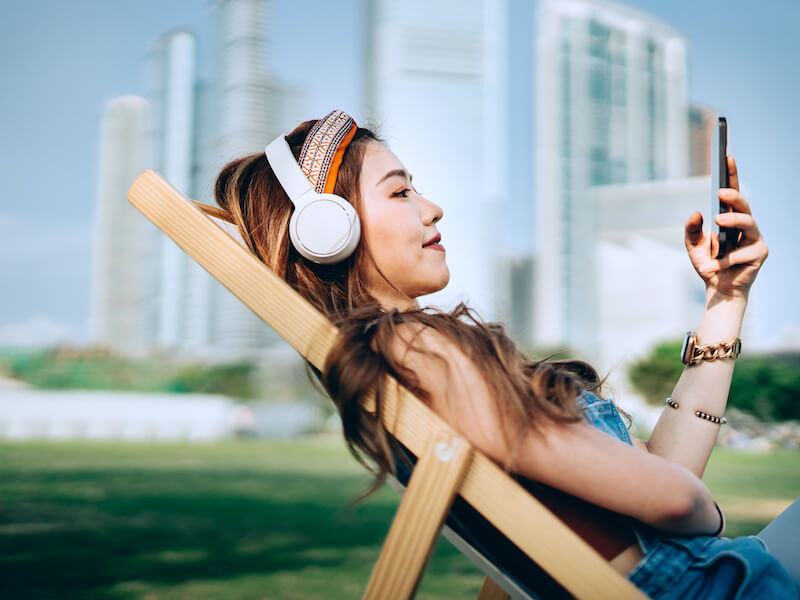
Music is an important part of Aiden’s life. While he’s out running, he’s listening to Pandora, while working it’s Spotify, and he has a playlist for everything he does: gaming, gym time, cooking, and everything else. His headphones are pretty much always on, his life a fully soundtracked affair. But the very thing that Aiden loves, the loud, immersive music, could be causing permanent harm to his hearing.
There are ways to enjoy music that are healthy for your ears and ways that are not so safe. But the more dangerous listening option is frequently the one most of us choose.
How can hearing loss be caused by listening to music?
Over time, loud noises can lead to deterioration of your hearing abilities. We’re used to thinking of hearing loss as an issue caused by aging, but more recent research is revealing that hearing loss isn’t an inherent part of getting older but is instead, the outcome of accumulated noise damage.
Younger ears that are still growing are, as it turns out, more susceptible to noise-related damage. And yet, the long-term harm from high volume is more likely to be ignored by younger adults. So because of extensive high volume headphone usage, there has become an epidemic of hearing loss in young individuals.
Is there a safe way to listen to music?
It’s obviously hazardous to listen to music at max volume. But there is a safer way to listen to your tunes, and it normally involves turning down the volume. Here are a couple of general guidelines:
- For adults: No more than 40 hours of weekly listening on a device and keep the volume lower than 80dB.
- For teens and young children: You can still listen for 40 hours, but the volume should still be below 75dB.
Forty hours every week is about five hours and forty minutes a day. Though that could seem like a long time, it can seem to pass rather quickly. But we’re taught to keep track of time our whole lives so the majority of us are pretty good at it.
The more challenging part is keeping track of your volume. On most smart devices, computers, and televisions, volume is not calculated in decibels. Each device has its own arbitrary scale. Maybe it’s 1-100. But perhaps it’s 1-16. You may not have any clue what the max volume on your device is, or how close to the max you are.
How can you listen to music while monitoring your volume?
There are a few non-intrusive, easy ways to determine just how loud the volume on your music actually is, because it’s not all that easy for us to contemplate exactly what 80dB sounds like. Differentiating 75 from, let’s say, 80 decibels is even more perplexing.
That’s why it’s greatly suggested you utilize one of many free noise monitoring apps. These apps, widely available for both iPhone and Android devices, will give you real-time readouts on the noises around you. That way you can keep track of the dB level of your music in real-time and make adjustments. Your smartphone will, with the proper settings, let you know when the volume gets too loud.
The volume of a garbage disposal
Your garbage disposal or dishwasher is usually about 80 decibels. That’s not too loud. It’s an important observation because 80dB is about as loud as your ears can take without damage.
So pay close attention and try to stay clear of noise above this volume. And limit your exposure if you do listen to music over 80dB. Maybe listen to your favorite song at max volume instead of the whole album.
Listening to music at a loud volume can and will cause you to have hearing problems over the long term. Hearing loss and tinnitus can be the result. The more you can be conscious of when your ears are entering the danger zone, the more educated your decision-making can be. And safer listening will hopefully be part of those decisions.
Still have questions about safe listening? Call us to explore more options.
